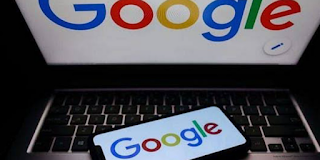Google Settles $700 Million Dispute Over Play Store's App Distribution
In a significant development, Google has announced a $700 million settlement in response to the dispute over its Play Store's app distribution in the United States. This settlement follows a class action lawsuit filed in 2021 by U.S. states and consumers, emphasizing Google's monopoly over app distribution on Android through the Play Store.
Background of the Dispute
The dispute, which led to the $700 million settlement, originated from a class action lawsuit filed in 2021, where U.S. states and consumers raised concerns about Google's dominant position in app distribution on Android devices via the Play Store. The tentative settlement was reached in September, signaling the beginning of a resolution process.
Terms of the Settlement
As part of the settlement, Google has agreed to pay $630 million directly to U.S. consumers as compensation for the app distribution-related dispute. Additionally, the company will contribute an extra $70 million to a fund designated for use by the states involved. This fund aims to address concerns and enhance app distribution practices.
Expansion of User Choice Billing Program
Google, in its efforts to address the concerns raised, has decided to expand its user choice billing program in the United States. The pilot of this program began in November 2022 and allowed developers to utilize alternative payment methods for in-app purchases. As part of the settlement, Google will broaden this program, enabling developers to display different costs based on the billing method chosen by the customer.
Google's Statement on the Settlement
In a public notice released by Wilson White, Google’s VP of Government Affairs & Public Policy, the company expressed its satisfaction in resolving the case with the states. The statement highlighted the company's commitment to app store choice and flexibility, emphasizing the allowance of alternative app stores on Android devices. Google affirmed that most Android devices come with two or more preloaded app stores.
The settlement reinforces the idea that original equipment manufacturers (OEMs) can continue providing users with options to use Play Store or another app store. Google outlined features implemented in Android 14 that enhance the functionality of third-party app stores for users and simplify the process of updating apps.
Addressing App Sideloading and Risks
Google also addressed the distinction between Android and iOS, emphasizing that Android users have the option to sideload apps. The company acknowledged the critical nature of informing users about potential risks associated with sideloading from external sources. As part of the settlement, Google committed to simplifying the sideloading process further and updating language to better inform users about the risks associated with downloading apps directly from the web.
In conclusion, Google's $700 million settlement reflects a proactive approach to address concerns raised by U.S. states and consumers regarding app distribution practices. The expansion of the user choice billing program and commitments to enhance app store choice demonstrate the company's commitment to fostering a competitive and user-friendly environment in the Android ecosystem.
FAQs
Q: What led to the dispute between Google and U.S. states and consumers?
- A: The dispute originated from concerns about Google's monopoly over app distribution on Android through the Play Store.
Q: What is the total settlement amount, and how will it be distributed?
- A: The settlement amount is $700 million, with $630 million directly benefiting U.S. consumers and an additional $70 million allocated to a fund for state use.
Q: What changes will be made to the user choice billing program as part of the settlement?
- A: The program will be expanded, allowing developers to display different costs based on the billing method chosen by the customer.
Q: How does Google plan to address the risks associated with app sideloading?
- A: Google will simplify the sideloading process and update language to inform users about potential risks, while still emphasizing the critical nature of safety efforts.
Q: What distinguishes Android from iOS in terms of app distribution options for users?
- A: Unlike iOS, Android users have the option to sideload apps, meaning they can download directly from a developer’s website without going through an app store like Google Play.

















0 Comments